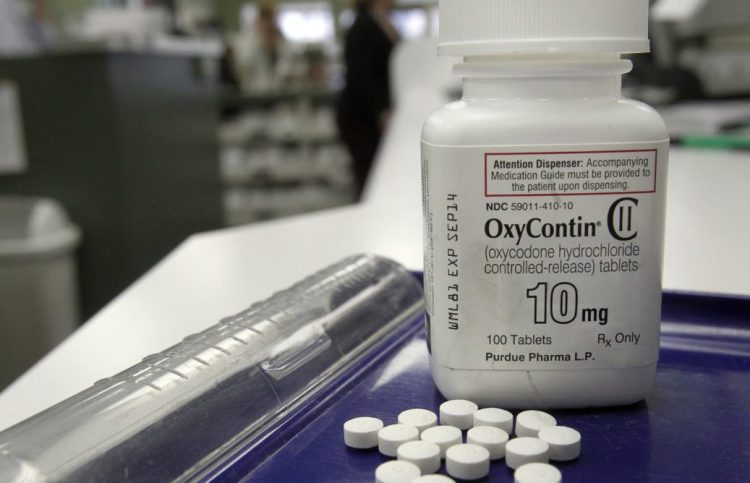In 2007, after a four-year federal investigation, Purdue Pharma pleaded guilty to a felony for underselling the risk of abuse and addiction related to its flagship product, the opioid painkiller OxyContin. The company and three executives paid a total of $634.5 million in fines. But they never missed a beat.
Purdue continued to push OxyContin as safe and effective, and sales continued to rise, peaking at $2.6 billion in 2012. By the time relentless lawsuits and a growing awareness of OxyContin’s role in a deadly epidemic led to a drop in sales, it was too late – the flood of powerful painkillers had already laid the groundwork for the heroin crisis that killed more than 63,000 Americans last year.
It’s not a straight line from Purdue’s aggressive marketing of painkillers to the tens of thousands of deaths from opioids. But it’s not a terribly crooked path, either.
Before OxyContin, opioids were prescribed sparingly, and only for serious illness. Misrepresenting a single study on the matter, Purdue Pharma claimed opioids were not as risky as previously thought, and that the company’s drug in particular was safe because of its time-lapse feature.
Doctors began prescribing OxyContin for everything from ankle sprains to bad backs. Soon after, people began breaking the pills up and either snorting or injecting them, getting a far better high than anything produced by the older medications.
The U.S. attorney for Maine issued an alert on the matter in early 2000, four years after the release of OxyContin. In testimony before Congress in 2001, and still today, Purdue claims the alert was the first time it had heard about its drug being misused.
However, a confidential Justice Department report obtained recently by The New York Times shows Purdue knew that OxyContin was being widely abused much earlier. Through its regular conversations with doctors and other medical professionals, the company had found out that its claims about OxyContin were false, and that unscrupulous doctors, drug dealers and drug users were all seeking out their product specifically. Yet Purdue did nothing to stop it, nor did it alter its marketing of the drug.
From 1997 through 1999, the Times notes, “sales representatives used the words ‘street value,’ ‘crush’ or ‘snort’ in 117 internal notes recording their visits” to medical professionals around the country.
Based on these findings, prosecutors recommended indicting three top Purdue Pharma officials on felony charges that could have resulted in years in prison. Instead, after top Justice officials in the Bush administration intervened, the case was settled.
Serious charges could have sent a message. They could have brought OxyContin sales back to a place of sanity. They could have made it less likely that someone was introduced to highly addictive opioids through all the ease of taking a pill.
The Justice Department missed that chance, but it won’t be the last one. There are efforts in Congress to hold drug manufacturers accountable for their place in the drug epidemic, and many states and cities, including Portland and Bangor, have signed on to lawsuits against drug companies.
Purdue Pharma is still out there making its misleading pitch on painkillers. Along with other drug manufacturers, it is still lobbying Congress and state legislatures to halt or weaken measures designed to curtail prescription drug abuse.
It’s about time the company got the message that it’s not acceptable.
Send questions/comments to the editors.



Comments are no longer available on this story